
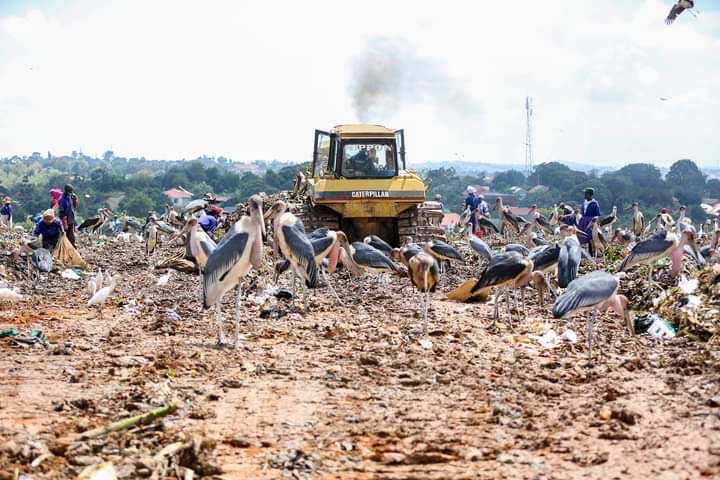
The decommissioned Kiteezi landfill continues to present challenges
On August 12, 2024, Uganda was hit with the shocking human-induced tragedy when a garbage heep collapsed and burried dozens people who were collecting stuff from the landfill.
The garbage also fell onto nearby houses in the early hours of the morning and killed those who were still preparing for the day’s work.
After close to a week of desperate search and rescue efforts, the total number of the dead stood at 35, but those who remained unaccounted for was more than the dead.
Since that tragedy, Kampala and surrounding urban areas that depended on Kiteezi landfill as the sole dumping ground for solid waste, have turned into stinking eyesores due to the pile up of uncollected garbage for months.
The garbage crisis would tempt some to think of creating an independent agency dedicated to erasing this national shame from our image.
But the raging debate about the ongoing downsizing of government as seen from the return of semi-autonomous government agencies back to their mother ministries, suggests there is little appetite for new agencies.
Proponents of this so-called rationalization have argued that it will save taxpayer money, and eliminate duplication.
Back at Kiteezi, the ugly and hair-raising incident (we’re used to Bagisu and Bakonzo dying annually from landslides in Mt. Elgon and Rwenzori respectively), but people being killed by a ‘waste-slide’, had never happened before in Uganda’s history!
This showed how little attention has been paid to solving the visibly mounting conditions for the imminent garbage-hill collapse!
Apart from Kiteezi, reports from around Uganda show that all urban centers (cities, municipalities, town councils, trading centers, etc) across Uganda, are seriously stranded with heaps and heaps of garbage. There’s no clear, cost-effective, sustainable and efficient disposal of the garbage/urban waste!
The old business-as-usual collect-and-dump-wastes-at-landfills—a practice Uganda has used for the over 60 years of independence—is no longer useful nor sustainable.
Land where to dump – in form of landfills, has run out! And because of this land shortage, what is available, is very expensive to purchase and manage/maintain! This desperate nationwide situation calls for national solutions.
I therefore suggest that the National Water and Sewerage Corporation (NWSC) set up in 1972 by decree No. 34, to serve urban areas with supply of water, collect and treat human waste (poo and urine), be tasked to take up the collection and management of urban solid waste throughout the country.
Government should urgently add to NWSC, the public waste/garbage management role/function, to serve urban areas with collection and sustainable management of urban garbage wastes!
NWSC should take up this new function, as this State-owned corporation has even won accolades as the best performing parastatal for now close to two decades.
My advocacy for NWSC to take up the role of garbage management in Uganda, shall of course, require cabinet approval of a Bill to amend NWSC’s 1972 Decree No. 34, that will among other things, collect garbage and process it into fertilizers, bricketts, gas, electricity, remove plastics from the rest of the bio-degradable wastes, them supply them to plastics’ recyclers and re-users.
NWSC shall need to be mandated legally via the law amendment, to charge/collect money for the new garbage-collection and management role, just as it does for the connection and supply of water to consumers across Uganda.
This amendment of NWSC law to give it the new role of urban solid waste management, instead of creation a new agency that will suck money from the Treasury.
There is also a need for NWSC to undertake mindset change campaign programs, among the people in urban areas, to educate them to sort their waste, i.e separate glass and metal, biodegradable waste and plastic in different containers for easy disposal.
Even those in rural areas dump household garbage on the road as if to show what they eat in their homes. We should value a clean environment, both in urban and rural areas.
Today, Uganda has ten cities: Kampala, Jinja, Mbale, Mbarara, Masaka, FortPortal, Soroti, Hoima, Lira, Gulu and Arua, where solid waste [garbage] is a common challenge.
All these cities and indeed other urban centers across the country are overwhelmed with solid waste [garbage], that a new national institution is required as the most cost-effective, urgent and efficient approach to the garbage challenge.
Beyond possessing some know-how and capacity, NWSC is best suited to handle this task because of the following reasons.
The most important above all, perhaps, is the link between water quality and solid waste as a contaminant of water sources. NWSC has repeatedly told us that the cost of treating water from lake Victoria – the source of the water that they pump to the rest of the city and its suburbs, is getting out of hand.
You need not be too observant to realize that water channels that drain waste water and run off, from Kampala and its suburbs, are choking with garbage.
The accumulation of garbage in water ways, coupled with poor disposal of chemical waste from factories, have caused a nightmare situation for NWSC engineers as they have to use lots of chemicals to clean the water.
Recent reports indicate that NWSC spends UGX10.8bn annually on buying chemicals that are used to treat water. This cost has been rising considerably due to increased levels of organic pollutants in the water bodies where the utility abstracts water before pumping it to its reservoirs.
By expanding NWSC’s mandate to cover solid waste, I am confident that the corporation will devise strategies to control the dumping of solid waste so as to reduce the cost of treating water.
Further more, NWSC has the money, a national presence to immediately take up this task.
The utility is present almost in all the towns and municipalities that are chocking on garbage. Expanding its mandate may not require setting up new offices or purchase new computers, but instead put this money into other initiatives to sensitize the masses or acquire garbage collection trucks.
NWSC’s own successful example, shows that we can surmount most of our development challenges if we’re determined, instead of looking for foreigners for solutions.
The Author is a science journalist and Director of Communications at The Science Foundation for Livelihoods and Development (SCIFODE).

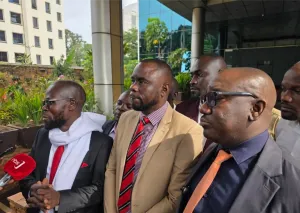
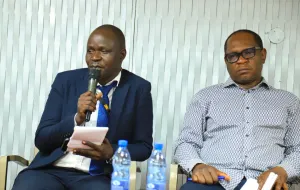

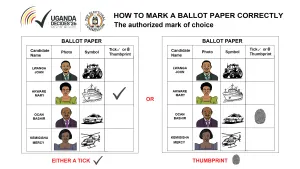
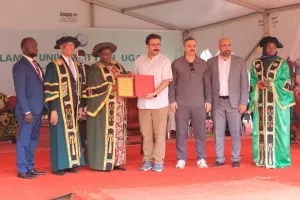








Peter Wamboga-Mugirya
Mr. Peter Wamboga-Mugirya is a veteran journalist. He currently works as the Director of Communications and Outreach at the Science Foundation for Livelihoods and Development www.scifode-foundation.org based in Kampala
Leave a Comment
Your email address will not be published.